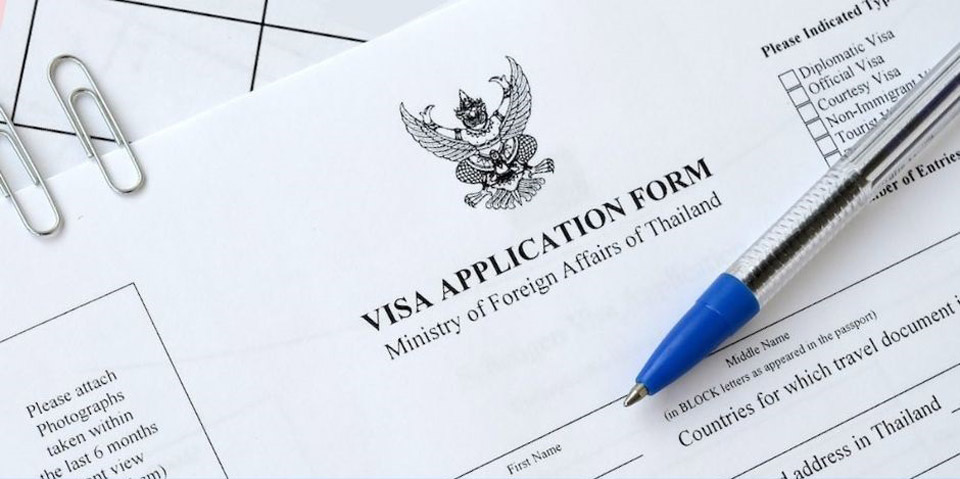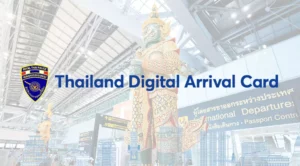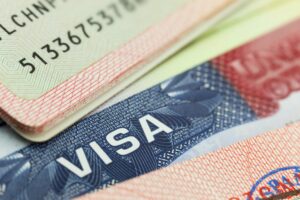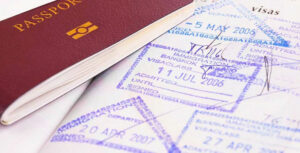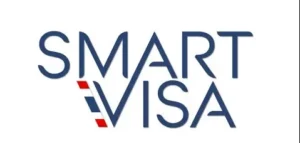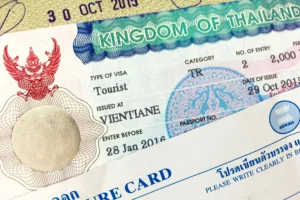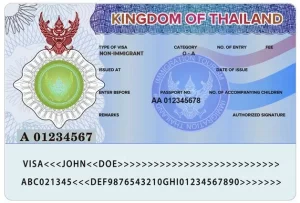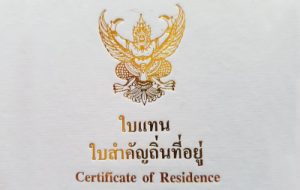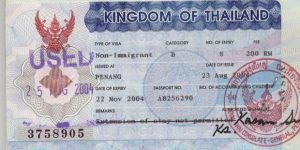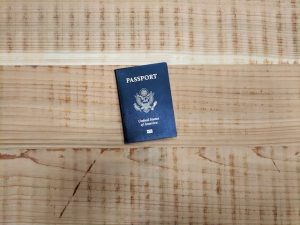Thailand Long-term Resident Visa, introduced through a 2022 Cabinet Resolution, marks a strategic shift in the country’s immigration policy—from temporary stay facilitation to policy-based migration management. It is not simply a long-stay visa; it is a legal residency instrument aligned with national objectives such as attracting capital, technology, and highly skilled professionals.
This article provides an in-depth analysis of the LTR Visa’s legal architecture, categories, privileges, and compliance framework—excluding promotional generalities and focusing solely on statutory structure, fiscal policy, administrative coordination, and practical implications.
II. Legal and Institutional Framework
A. Governing Authority
-
Immigration Act B.E. 2522 (1979): The statutory basis for foreign presence in Thailand.
-
Cabinet Resolution (2022): Establishes the LTR Visa category and mandates cross-agency cooperation.
-
Board of Investment (BOI): Leads operational administration, eligibility vetting, and work permit issuance.
-
Revenue Department: Implements tax exemptions and flat-rate taxation for eligible visa holders.
-
One Stop Service Center (OSSVC): Central point for application processing, renewals, and dependent services.
B. Distinguishing Nature
Unlike Non-Immigrant visas or the Elite program, the LTR Visa is built to function like a quasi-residency regime. Its benefits are based not on discretionary hospitality or lifestyle spending, but on objective contributions to national growth sectors.
III. Categories of Eligibility and Purpose Alignment
The LTR Visa limits access to four well-defined categories, each associated with a macroeconomic or strategic objective.
1. Wealthy Global Citizens
-
Asset Threshold: USD 1 million.
-
Annual Income: USD 80,000 (past two years).
-
Thai Investment: Minimum USD 500,000 in real estate, equity, or bonds.
Purpose: Inject long-term foreign capital into local markets with minimal short-term volatility.
2. Wealthy Pensioners
-
Age: 50+.
-
Annual Income: USD 80,000, or USD 40,000 with USD 250,000 invested in Thai assets.
Purpose: Increase stable domestic consumption by retirees without burdening the public healthcare or welfare systems.
3. Work-from-Thailand Professionals
-
Employer Revenue: ≥ USD 150 million globally.
-
Income: USD 80,000/year.
-
Experience: At least 5 years.
-
Work Structure: Remote work only—no Thai employer or local economic impact.
Purpose: Accommodate the global shift to digital labor without creating competition in Thailand’s domestic job market.
4. Highly Skilled Professionals
-
Income: USD 80,000/year, or USD 40,000 with postgraduate degree.
-
Sector: Must align with BOI’s target sectors—robotics, AI, aerospace, biotech, etc.
-
Employer: BOI-certified Thai or foreign entity.
Purpose: Address local skill shortages in high-tech, R&D, and advanced service sectors.
IV. Visa Validity and Structure
| Feature | LTR Visa Provision |
|---|---|
| Total Duration | 10 years (issued in two renewable 5-year terms) |
| Re-entry Permits | Not required |
| Work Permit | Digital and quota-free (for Categories 3 and 4 only) |
| Address Reporting | Required once annually (replaces 90-day rule) |
| Health Insurance | Mandatory coverage of USD 50,000 or enrollment in Thai Social Security |
This structure offers legal predictability that surpasses both retirement and employment visa frameworks in Thailand.
V. Employment Authorization
LTR holders in Categories 3 and 4 are eligible for a BOI-issued Digital Work Permit.
Legal Highlights:
-
Quota Exemption: Exempts employer from 4 Thai workers per 1 foreigner rule.
-
Issuing Authority: BOI—not the Ministry of Labour.
-
Duration: 5 years (renewable with the visa).
-
Sectors Restricted To: Only BOI-approved industries.
This represents a legally distinct route into Thai labor markets—streamlined, digitally managed, and insulated from conventional work permit bureaucracy.
VI. Taxation Regime
Thailand’s territorial tax system—codified in the Revenue Code—is optimized for LTR holders through additional statutory privileges.
1. 17% Flat Personal Income Tax
-
Applies To: Category 4 (Highly Skilled Professionals).
-
Condition: Must be BOI-employed in a certified sector.
-
Scope: Applies to Thai-sourced income only.
This rate undercuts Thailand’s standard progressive scale (5%–35%) and positions the LTR as one of Southeast Asia’s most tax-efficient legal employment pathways.
2. Foreign Income Exemption
Under Section 41 of the Revenue Code:
-
Foreign-sourced income is not subject to Thai tax if it is not remitted to Thailand in the same year it is earned.
-
Applies broadly to:
-
Remote workers.
-
Pensioners.
-
Offshore portfolio holders.
-
This allows complete tax neutrality for offshore income held abroad—a benefit that is fully legal and transparent.
3. Filing and Residency
-
Tax Residency: Triggered at ≥183 days of presence in a calendar year.
-
Obligation: All tax residents must file annual returns, even if all income is offshore and exempt.
VII. Investment and Property Rights
LTR holders have limited, but substantial, access to economic rights under Thai law.
Permitted:
-
Condominium Ownership: Freehold ownership within the 49% foreign quota of each development.
-
Leaseholds: Up to 30 years for residential land and buildings.
-
Investments: Thai equities, BOI-endorsed projects, and government bonds.
Not Permitted:
-
Land Ownership: Prohibited under the Land Code B.E. 2497; LTR status does not override this restriction.
VIII. Family and Dependent Rights
LTR holders may include up to four dependents, such as:
-
Legally married spouse
-
Children under 20 years
Privileges:
-
Same 10-year visa duration.
-
Unified processing at OSSVC.
-
Children may attend Thai or international schools.
-
Spouses may apply for digital work permits if they qualify independently.
This makes LTR the only program in Thailand to combine long-term residency, employment rights, and family inclusion without requiring additional visa classes.
IX. Travel and Immigration Efficiency
-
Fast-track lanes at major international airports.
-
Re-entry permits waived.
-
Visa extensions, work permit renewals, and reporting centralized via OSSVC.
-
BOI assistance with regulatory issues, documentation, and tax guidance.
X. Compliance and Revocation Framework
Ongoing Requirements:
-
Maintenance of qualifying income, employment, or investment.
-
Valid insurance or social security coverage.
-
Annual address reporting.
-
Tax filing if resident.
Grounds for Revocation:
-
Criminal conviction.
-
Regulatory violations (e.g., overstays, false documentation).
-
Termination of employment or divestment below eligibility thresholds.
-
National security risks.
Revocation is procedural but may be appealed through BOI channels or administrative court review under Thai law.
XI. Practical Scenarios
1. American Data Analyst (Remote Worker)
-
Income: USD 120,000 from U.S. employer.
-
Category: Work-from-Thailand Professional.
-
Outcome: No Thai income tax if income is kept offshore; 10-year legal stay.
2. German Retiree
-
Pension: EUR 65,000/year.
-
Investment: USD 300,000 in Thai condo.
-
Category: Wealthy Pensioner.
-
Outcome: Avoids O-A Visa restrictions (annual renewals, deposit rules).
3. Japanese Robotics Engineer
-
Employer: BOI-endorsed AI lab.
-
Income: THB 4.5 million/year.
-
Category: Highly Skilled Professional.
-
Outcome: Pays 17% PIT; spouse and child included in same visa package.
XII. Conclusion
The LTR Visa Thailand is a rule-based, policy-linked visa framework with embedded legal rights and obligations. It is designed not for mass residency, but for qualified individuals whose presence contributes to Thailand’s development vision. It combines the features of residency, employment authorization, and fiscal optimization into a single, integrated status.
For those who meet the entry thresholds, it provides certainty, privileges, and long-term legal residence—backed not by discretionary invitation, but by codified entitlement.

